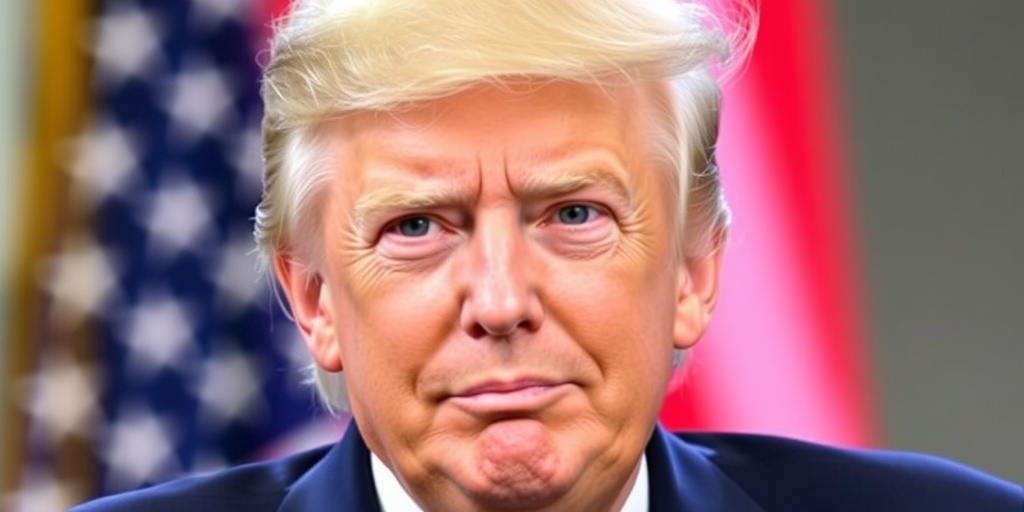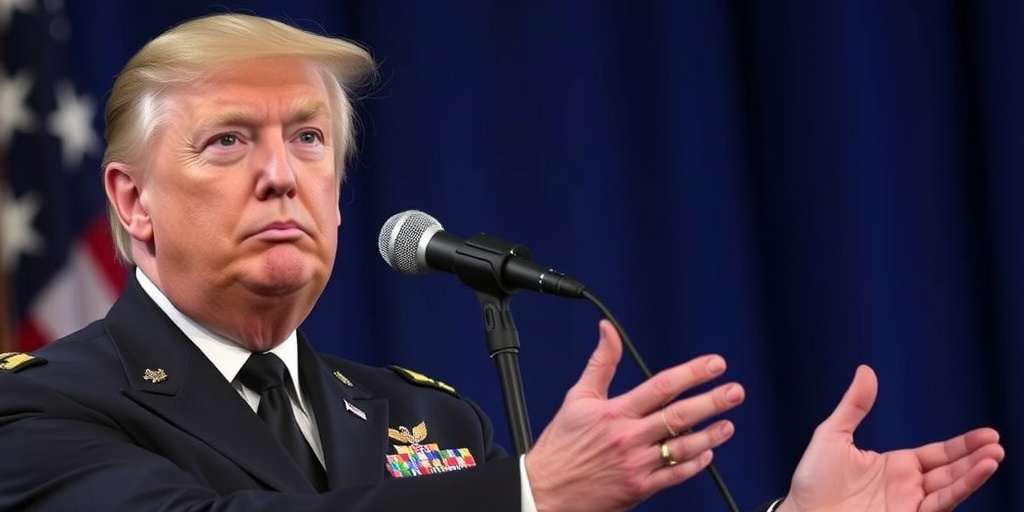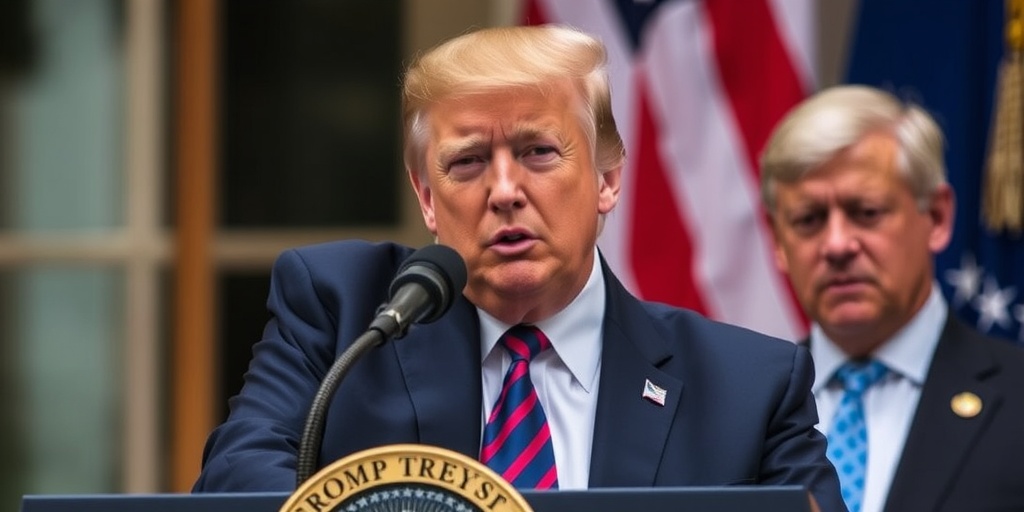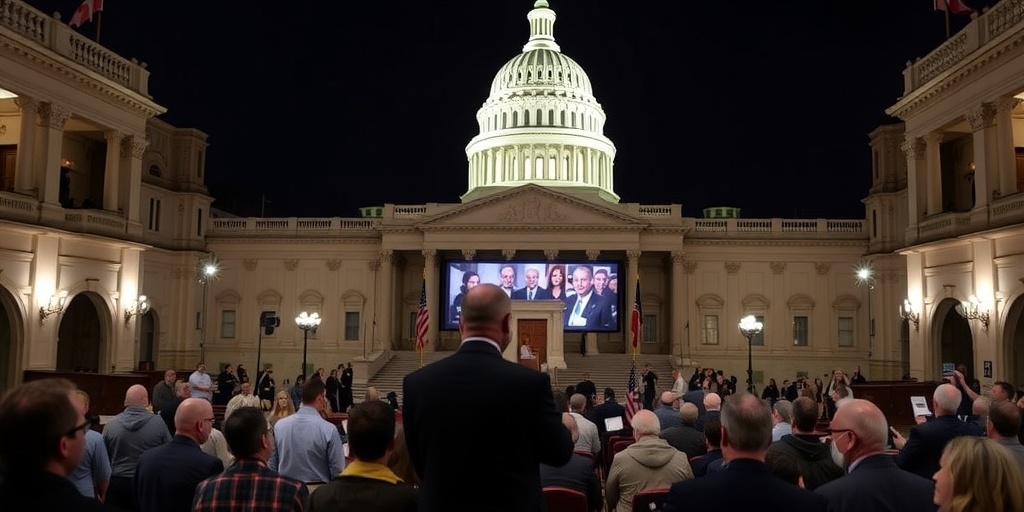Now Reading: Justices Urged to Maintain Nationwide Block on Trump’s Birthright Citizenship Order
-
01
Justices Urged to Maintain Nationwide Block on Trump’s Birthright Citizenship Order
Justices Urged to Maintain Nationwide Block on Trump’s Birthright Citizenship Order
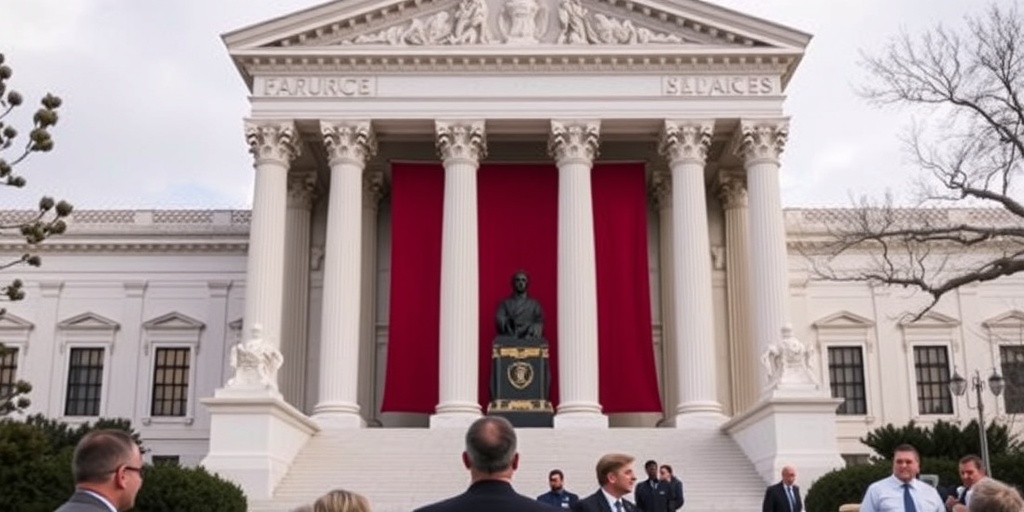
Legal Opposition to Trump Administration’s Birthright Citizenship Order Grows
On Friday, immigrant advocacy groups and leaders from 22 Democratic-led states responded vigorously to the Trump administration’s request for the Supreme Court to clarify the legality of its controversial order aimed at ending birthright citizenship for children of undocumented immigrants and foreign residents. The legal implications of the request are profound, as it could significantly alter the citizenship landscape in the United States.
The Trump administration’s emergency application to the Supreme Court was filed in March, seeking to overturn lower court rulings that had temporarily blocked the implementation of the executive order. The administration’s move came on the heels of a series of legal challenges that have emerged around various policies instituted during Trump’s presidency. The order that President Trump issued on his first day in office aimed to deny citizenship to babies born in the U.S. if at least one of their parents is neither a U.S. citizen nor a legal permanent resident. This approach would directly impact countless children born to individuals who crossed into the country without permission.
In their filings, immigrant advocacy organizations emphasized that Trump’s attempt to modify the constitutionally guaranteed principle of birthright citizenship was an overreach executed via “executive fiat.” One such brief argued, “Birthright citizenship is at the core of our nation’s foundational precept that all people born on our soil are created equal, regardless of their parentage.” This sentiment was echoed by various legal experts, who argue that the birthright citizenship principle has long been established in U.S. law.
The cases surrounding the contested order have seen federal courts in Massachusetts, Maryland, and Washington State blocking the initiative to allow for further litigation. The legal battles over birthright citizenship are part of a broader strategy by the Trump administration to address immigration issues through judicial channels. Several other legal challenges currently pending before the Supreme Court involve controversial policies, including the use of the Alien Enemies Act to deport Venezuelan migrants and the suspension of federal teacher-training grants tied to programs promoting diversity, equity, and inclusion.
The administration has characterized its request to the Supreme Court as “modest.” Rather than addressing the legalities of birthright citizenship directly, the government has framed its argument around a long-standing legal debate regarding the use of nationwide injunctions. These injunctions allow federal judges to impose a temporary freeze on policies until further litigation can take place, rather than limiting the pause to just the plaintiffs involved in a case. Critics of this practice argue that such broad actions lead to politicization of the judiciary and create confusion, as judges make emergency rulings without the full context of a case.
Critics of the administration’s request assert that stopping nationwide injunctions could lead to judicial chaos. In their briefs, the challengers have pointed out that the birthright citizenship issue exemplifies the necessity of maintaining the capability of judges to issue nationwide injunctions. The argument against the administration’s requests emphasizes that any potential approval from the Supreme Court could lead to detrimental consequences, stripping thousands of American-born children of their citizenship in multiple states during the ongoing legal struggles, even if such actions conflict with well-established legal principles.
In a joint brief filed by attorneys general from Democratic-led states, they condemned the Trump administration’s request as “remarkable.” The brief highlighted the potential ramifications of lifting the nationwide block on the citizenship of American-born children of undocumented parents, arguing that it would set a troubling precedent. The states’ leaders are united in defending the rights of children born on U.S. soil, insisting that birthright citizenship should remain protected regardless of the parentage of those children.
As these legal arguments unfold, the stakes are exceedingly high for families across the country. The battle over birthright citizenship is not just a legal issue but a deeply personal one for millions of Americans and immigrants who see it as a matter of fundamental rights. The Supreme Court’s eventual decision on this matter will undoubtedly have a lasting impact on the nation’s immigration landscape and the definition of citizenship itself, influencing how laws are interpreted and implemented in future administrations.
As the situation develops and the justices prepare to weigh in, the attention of legal experts, immigrant advocates, and the general public remains fixed on the potential outcomes of this pivotal case, which could reshape the contours of citizenship in America.
Stay Informed With the Latest & Most Important News
Previous Post
Next Post
-
 01New technology breakthrough has everyone talking right now
01New technology breakthrough has everyone talking right now -
 02Unbelievable life hack everyone needs to try today
02Unbelievable life hack everyone needs to try today -
 03Fascinating discovery found buried deep beneath the ocean
03Fascinating discovery found buried deep beneath the ocean -
 04Man invents genius device that solves everyday problems
04Man invents genius device that solves everyday problems -
 05Shocking discovery that changes what we know forever
05Shocking discovery that changes what we know forever -
 06Internet goes wild over celebrity’s unexpected fashion choice
06Internet goes wild over celebrity’s unexpected fashion choice -
 07Rare animal sighting stuns scientists and wildlife lovers
07Rare animal sighting stuns scientists and wildlife lovers













